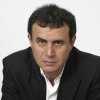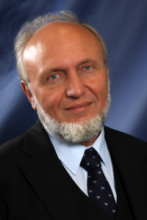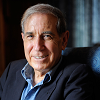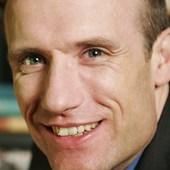Syrian Snapshot I: A View From the Capital

Crossing over the Lebanese border into Syria was anticlimactic. It was the second week of January and the lines of people waiting to have their papers checked did not look markedly shorter than during my two previous visits, both having taken place well before popular Arab revolts broke out across the Middle East.
Even security checks – looking into the trunk of our car and the kinds of questions asked by immigration personnel – appeared, if anything, less probing than my earlier experiences.
But two things caught my eye. The first was the posters vilifying certain media networks – Al Jazeera, Saudi-owned Al Arabiya, and the BBC – which dotted the walls of the border crossing. One to the right of the counter for “foreigners” hovered over the head of the Canadian Broadcasting Corporation (CBC) crew in line in front of me. Ah, I thought – the rumors that foreign journalists are now trickling into Syria may be true.
The second noteworthy detail was the whispers among border personnel that a busload of Syrian soldiers being transported from their barracks had been bombed by a roadside IED near Zabadani, a town now claimed by the armed opposition. I have no confirmation of this.
I was worried about my stay in Damascus in the Christian quarter of the Old City. Just four days earlier, on Friday January 6, a suicide bomber had detonated his explosives in a crowded area in Midan – inside the capital – apparently targeting a bus with policemen on board, although the casualties were mostly civilians.
I was keen to see if there were tangible ramifications of this act of terror in the heart of Damascus – ten months into the protests, the city is still largely viewed as being supportive of the government. Damascus counts. No uprising will be complete unless this city of 2.6 million shifts that balance. The capitol will eventually have to be a battlefield for any revolt to succeed, even if only a political one.
Syria is icy cold this time of year, which may account for some of the empty streets that are normally bustling with humanity. But the Friday after the suicide bombing, the streets were noticeably devoid of people and the number of cars driving about were minimal. Friday, the Muslim day of prayer, is usually spent with family, so it wasn’t altogether clear if the stillness was due to the previous week’s violence.
Syrian President Bashar Assad’s voice greeted us on the radio as my friend and I drove into the country a few days earlier. He was delivering his fifth speech since protests broke out in March last year. It was long-winded and my companion translated every so often. I waited impatiently for these tidbits which kept coming in until well after we were sipping tea in a Damascus hotel lobby where guests and conference attendees were crowding around the TV screens to pass their judgments.
Later that day I met with the first person on my list of regime opponents, most of whom had served prison terms at some point in their lives. I will write in more detail about these men and women later, but they varied from those who desired an overhaul of the regime while keeping Assad’s presidency intact, to those who would not consider dialogue with any part of the existing government. There were some commonalities. All rejected any foreign military intervention and the militarization of the protests. The majority were scathing about the Free Syrian Army (FSA) and external opposition groups like the Syrian National Council (SNC), so liberally quoted by the Western media as the definitive voice of the Syrian “opposition.”
“Their decisions are made in America and Turkey,” said one regime critic about the foreign-based Syrian opposition. “I want decisions made in Syria.”
Another one parried: “The external opposition are not an effective part of the opposition. They don’t participate in any political parties here. We want to change the system in a safe way – we don’t want to pay a higher price than necessary. We want national cohesion, we don’t want a collapse of the economy and we don’t want to lose our sovereignty.”
Most of these domestic-based opposition figures I met were disparaging about international sanctions too: “Life is very expensive for the Syrian people now and [the sanctions] will take the country into a vicious cycle of poverty and violence and harm the democratic transition,” says Louay Hussein, leader of the Building the Syrian State movement, who spent seven years in prison during his 20s.
“Sanctions will not affect the authorities, but will affect the people,” claims retired political economist Aref Dalila, an organizer of the 2000-1 Damascus Spring (a period of unusual political and social openness in Syria immediately following Hafez Assad’s death) who was released from a seven-year prison term in 2008. “People are already paying a high cost – prices have risen dramatically, factories have shut down, imports have decreased by around half and unemployment has risen, especially in the tourism sector.”
Too true. I was the only guest staying in the charming 17th century converted Damascene house nestled along narrow cobblestone streets in Damascus’ Old City. The famed boutique hotel with intricately painted ceilings and carved mother-of-pearl-encrusted wooden doors is usually impossible to book.
The only apparent benefit of sanctions was that I could sit in my pajamas for my morning tea and croissant in the hotel’s petite courtyard, unencumbered by chiding looks from other guests or staff. There was one woman manning the place during the day, replaced by a gentleman in the evening. My second night there, he called me at 3am when I had not yet returned to the hotel to check on my safety: “I was worried,” he said, “you know, because of what’s going on.”
Worried they may be, but that didn’t stop reportedly tens of thousands of Syrians flooding into Ummayyad Square – named after the Ummayyad Caliphate whose capital was Damascus – in support of their president earlier that day. A makeshift stage was erected in front of the imposing Assad Library, where supporters chanted pro-regime slogans and condemned the machinations of foreign leaders against the Syrian state. Qatar’s Emir Hamad bin Khalifa Al Thani and Turkey’s President Recep Tayyip Erdogan were particularly singled out for derision.
The masses were in for a surprise though. Assad himself, accompanied by his wife Asma and two of their children, swung by to speak to the jubilant crowd – and some said also to quell long-circulating rumors that his family had fled Syria.
I had heard about this rally the night before from the young pro-Assad son of an anti-regime woman who had seen notices on Facebook. That surprised me – Facebook was not available, except via proxy websites, during my last visit. It had been re-introduced to Syrians in February 2011, the year of the Arab revolts.
I went to the square with low expectations. News reports in the West rarely cover pro-regime gatherings, and almost always suggest that participants are forced to attend, are engaging out of fear, or are bused in by the government – sometimes even paid to join the throngs.
I only managed to reach the square after the president’s departure, when many had already departed, and some were still trickling out of the square. Still, crowds lingered to chant pro-Assad songs, dance the traditional “dabke” and wave flags – including Hezbollah ones to mark support for the Resistance. They were women and men, young and old, religious and secular, soldiers and civilians, well-heeled and not – certainly, none looked “forced” to participate in the gathering.
By comparison, take a look at this YouTube video of the same square ostensibly filmed during Assad’s speech. The square looks almost empty and it appears his voice has been added into the footage, suggesting a low turnout even at the rally’s peak. I didn’t get to the square until after Assad’s departure, but even then, you can see the stark difference in crowd size between the two video clips – a testament to the ferocity of the media battle for narratives over Syria these days.
The celebrations went on long after my frozen hands decided to seek refuge indoors. An earlier meeting had been postponed because of road blocks around the square that cut off access to many parts of the city, so I met up instead with Ammar Ismail, persona non grata in the Western hemisphere and an online activist in the cyberwar over Syrian narratives.
Ismail leads a frenzied online presence via his web-based Damascus News Network (DNN) available on Facebook. Through video footage, pictures and articles, the social media site offers counter-narratives to Western-dominated ones on Syria, but Ismail, a self-proclaimed nationalist, is often critical of the regime too.
He claims a news article referring to him as the “head of the Syrian Electronic Army” caught the eye of the European Union, which accuses Ismail of hacking websites on behalf of the Syrian government – allegedly because “its IP addresses indicates that it is collocated in facilities which belong to the Syrian government,” according to a CNN Article. He was one of a handful of Syrian nationals whose assets were frozen by the EU in November – no hackers or cyberwarriors on the opposition side received similar punishment. His recent venture to encourage cooperation between the Italian and Syrian textile industries suffered, and Ismail was forced to shutter the business.
In the past few days, Ismail has been forced to relocate his young family as a precaution against death threats. His son will have to be home-schooled for a while, he says, exclaiming: “how does my right to exercise freedom of speech become an issue for the EU?” Ismail plans to file legal proceedings against the European Union shortly.
Damascus is bizarrely open for a city that has been the target of opposition groups intent on splintering the regime by first swaying the capitol from its pro-regime bent. The internet is bustling with competing narratives, the airways open to the vilified foreign media networks accused by Assad’s government of fueling and propagandizing the protests.
Walk into a Damascene café or business and you are likely to see television screens broadcasting the pro-regime Addounia network or state-sponsored Al Ekhbariya Soriyah alongside the much-maligned Al Jazeera or US-backed Al Hurra. It almost seems like the regime is saying “bring us your worst – we have little to fear.”
A world away, in Homs, Deraa, Idlib, Douma, Zabadani and other Syrian hot spots the battle for narratives is harder fought. These are the cities and towns where people are reportedly dying by the dozens each day. I had a trip planned to some of these places – one that did not materialize after France 2 cameraman Gilles Jacquier was killed by a projectile while on a government-accompanied tour of Homs. But although I felt as though I might actually be safer in the immediate aftermath of Jacquier’s death, some apparently thought otherwise.
This Syrian conflict has layers and layers that we have not yet peeled within the pages of our sanctified newspapers and online repartees. I have seen very little verifiable professional reportage from the main areas of conflict. Most of the “storyline” is taking place in capital cities where competing governments appear determined to decide Syria’s future. The Syrian people are just cannon fodder. I am not sure their lives are even considered, as long as their bodies, alive or dead, lying on streets or taking part in rallies/protests, provide these storylines a way to feed into their vying narratives.
Damascus is inexpensive. The food – even in hole-in-the-wall cafes – is better than in most cities out for a quick tourist buck. The people are hospitable, even chivalrous. You feel safe walking the streets and talking to strangers. Today, people discuss politics in the open – that is surely a step up for the authoritarian state. The mood though, is cautious, worried and even angry. But the rage swings both ways – there are those to the right of the regime who are threatening to take up their own arms if the Syrian government does not protect them against opposition gunmen. While there appears to be a domestic stalemate today, that could easily turn if sectarian battles escalate.
I have seen gruesome still photos of casualties that don’t inform me if the victim is Sunni, Christian, Kurd, Druze or Alawite, but the sheer volume of these photos and footage suggests to me that some in Syria now think nothing of making snuff films to further their narratives. Is the shooting soldier really a member of the regular armed forces or someone donning a uniform to make it appear so? Is the bearded guy with the weapon really a militarized gunman or is that a trick of the regime?
The answers may be a long time coming, but one thing is certain: there are efforts underway by both sides to sway public opinion, and that effort is not by any means limited to those inside Syria. What do the majority of Syrians want? That is still the million dollar question, and the answer appears to shift with each major development – sometimes with optimism, usually with pessimism. If I were to wager on the outcome of this crisis though, I would firmly place my bets on the Syrian people rejecting these interventions and reaching their own national consensus on a democratic transition that ensures sovereignty. If civil war is to be averted, there are only a few options out of this conflict after all – and the one that offers the least chaos is the one most likely to appeal to the Syrian majority.





















